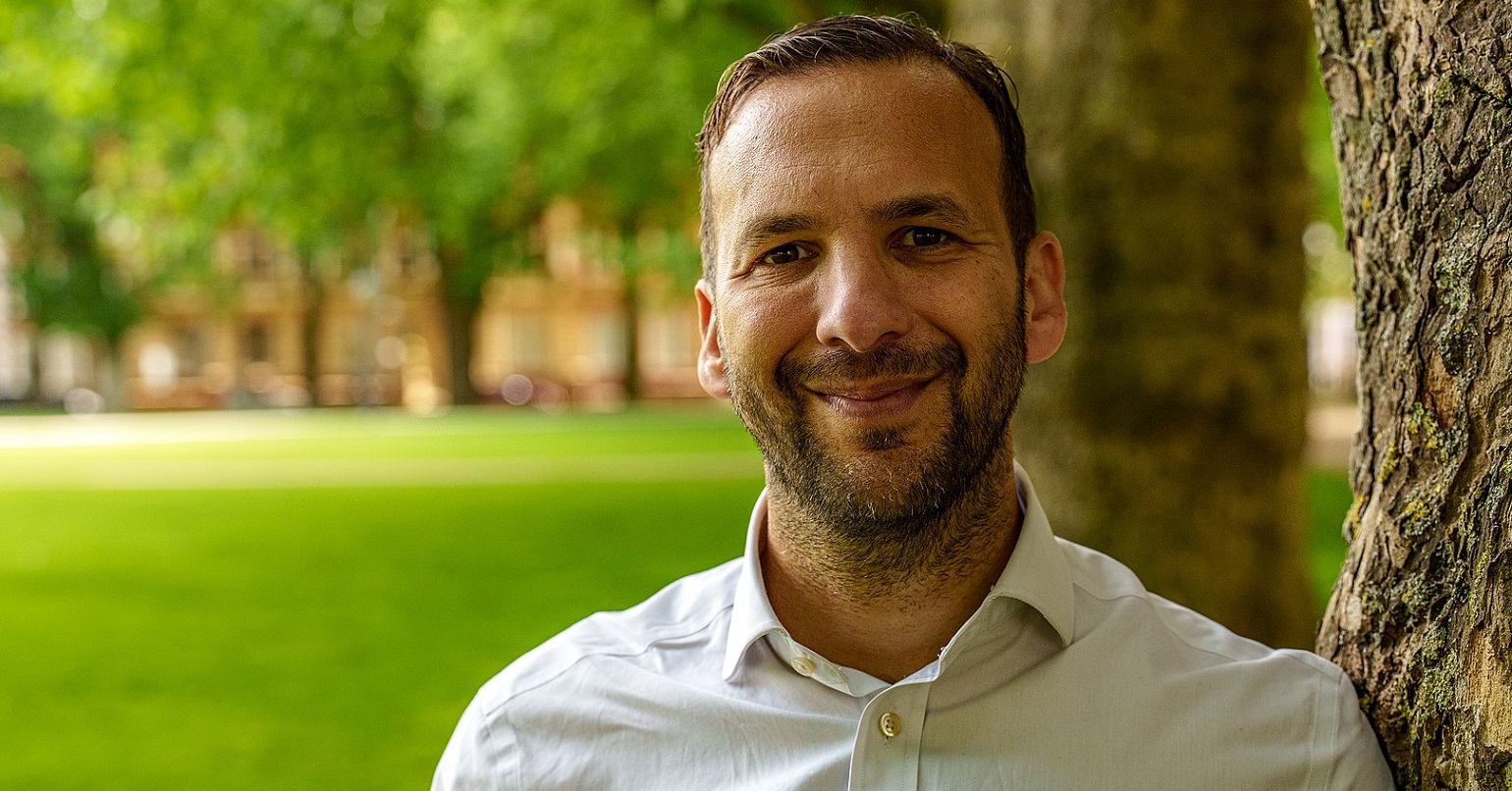“Most people in the UK are Green” – an interview with Nick Humberstone

Nick Humberstone’s pitch for the deputy leadership of the Green Party of England and Wales is fairly straightforward. The Green Party should be better at communicating its policies and values to people like him who haven’t long had an interest in or understanding of politics. His campaign website claims that as deputy leader, he would be an “ordinary voice to reach out to ordinary people”. It bemoans the party’s use of words such as “neoliberalism” and “authoritarian” which he claims causes confusion among voters.
And when Bright Green spoke with him recently it is this that continued to be a major focus. He starts in this vein by describing himself as an “outsider” to politics with a “unique perspective”. That perspective, he claims, is driven by his relatively recent entry into politics – having “only got into politics” three years ago at the age of twenty one. Humberstone says that at this time he faced “barriers” getting involved in politics as a result of language use, with people using words he had “no idea” what they meant.
Clearer messaging
To this end, Humberstone is placing his emphasis on shifting the party’s messaging to broaden the party’s appeal to people who don’t follow the daily ins and outs of politics. For him, there is a large portion of the electorate currently being missed:
I think there’s a lot of people like me in the UK that have no idea about those kind of political terms
He continues by making the case that the party’s messaging ought to be clearer, and argues for taking inspiration from an unlikely source. He says the Green Party needs to be:
talking about politics a way where we make sure there are no barriers to stop people understanding our messaging, and speaking clearly – kind of taking some inspiration from Donald Trump to be honest.
He then quickly explains that of course it isn’t Trump’s politics that the party should be replicating but his approach to conveying messages in a clear, digestible form:
Obviously his policies are bad, but the way he’s communicated those messages a lot of the time has been really strong […] But the way that he gets his message across is really simple, and really easy for people to understand and often appeals a bit more to feeling and emotion
Winning over Conservative voters
This focus on messaging is in part derived from what Humberstone sees as the future electoral prospects for the party. He is not short of ambition, nor of his faith in the electorate. According to Humberstone, “most people in the UK are Green”, and the party failing to breakthrough in a big way is down to the party so far having notspoken in the right terms to the majority of the public.
He makes this case plainly by arguing the party should be appealing to all voters – including Conservatives:
There are people who vote Conservative who could vote Green. I firmly believe that […] I think that we have to make an effort to reach out to those people. Because if we don’t, if we stay as this small block, we’re just going to be a small block forever. We have to work out a way that we can get mass appeal.
When probed on what this looks like in practice, he is firm in reiterating that what he is talking about is shifting messaging and narrative, rather than any change to policies or political positioning. Indeed, he promptly dismisses the idea that this would constitute moving the party rightwards:
The first thing I’ll say is that it doesn’t move anywhere to the right. They will stay where they are. The policies are great. It means thinking about the language that we’re using because I think a lot of people – myself included – don’t understand some words that we use in politics and throw around a lot.
But while he states this at one point, at another, he is concerned that the party is at risk of being perceived as being too radical, too left wing. When asked about the political opportunities presented to the Green Party by Labour’s rightward shift under Keir Starmer, he expresses worry that this will make the Greens appear “far off to the left”. Mitigating that, he argues that the party must avoid being seen as a “small”, “radical left voice” in the newly emerging context.
Despite this, he makes the case for bringing radical grassroots activists into the party. In particular, it is Black Lives Matters organisers which he sees as finding their natural home in the Greens – especially given Keir Starmer’s comments distancing himself from their demands:
I think they will naturally look for somewhere else to be political. These people are already activists so we need to make sure we’re approaching them with open arms to say come and join us.
Does lifestyle matter?
Although central to Humberstone’s pitch is the idea that the Greens can appeal to the public at large – including right wing voters – without drifting from the left, in at least one specific area he positions himself on the right of a long running debate. In environmental campaigning circles there has often been a disagreement as to whether pushing for individual lifestyle change is viable means through which to achieve a sustainable society.
Traditionally, those leaning to the right see it as crucial – people need to take it upon themselves to recycle more, eat fewer animal products, buy and consume less – and more sustainably. This will then trigger a market response which will shift our economy, agricultural system and so on towards greener alternatives as the demand for such lifestyles increases. By contrast, those leaning to the left will argue that the current economic system is rooted in exploitation of both people and the planet – an exploitation which can only be overcome by overhauling the system from top to bottom. The market cannot and will not transition itself away from large scale fossil fuel extraction, mechanised meat based agriculture or seeing the planet as a resource to be exploited.
Humberstone falls on the first side of this debate. He argues that “personal change is really important”, and thinks the Green Party should be making the case more stridently that the public has to shift its behaviour:
I think that it’s beneficial for us to encourage people to try and make those choices where they can. We obviously have to be cautious because not everyone is in a position to be able to make those choices. Some people have more privilege where switching to a vegan diet is really easy for them. Some people – they’re worried about getting food on the table, so they’re not going to have the time kind of check in that their diet is has all the nutrition they need.
And he also rejects the idea that there is a dichotomy here between lifestyle and systems change. Rather, he says that people making individual changes to their behaviour now will ready themselves for systemic changes the Greens want to deliver in the future as well as forcing the market to act:
But also it’s just part of the route, it’s part of what life will be like afterwards. The future that we’re promising people will be one where you use public transport more, where you cycle more and where you buy your fruit and veg loose at the supermarket more. That’s the kind of future we want the world to be like.
So encouraging personal change alongside that is not only good for those people to have an inside look and have experience of things to come so the change is less drastic, but also those people doing that personal change in a capitalist system will pressure businesses to respond as well.
Humberstone does go on to say he doesn’t think that this should be a “major thing we spend a lot of time on” in the party’s communications. But it nevertheless stands in stark contrast to other candidates standing in this year’s leadership elections. Not least of these is Rosi Sexton – who has stated clearly in her pitch that the Greens are not a “lifestyle movement”.
Telling rather than showing
Whether that makes up a central plank of Humberstone’s vision for the party or not, it is clear through talking to him that he sees the Greens’ messaging as key. He isn’t alone. This has featured heavily in much of the conversation around the leadership contests so far. But ultimately, having spent an extended period speaking, it is not yet clear whether he can move out of the trap of ‘telling’, rather than ‘showing’. Humberstone spends a lot of time telling members that the party needs to improve its messaging. Much less is spent showing them how it can be improved and how he can be the person to do it.
There are still several weeks until voting closes in the contest. Up against an incumbent deputy and other much more high profile candidates, for Humberstone to be in with a shot of causing tremors in this election, he’ll need to shift gears and demonstrate to the membership precisely how he can deliver the “mass appeal” for the party that he wants to see.
This is the third in a series of interviews with the candidates for the deputy leadership of the Green Party. In addition to these interviews, we also hosted a hustings for candidates on July 20, a recording of which you can watch here.
PS. We hope you enjoyed this article. Bright Green has got big plans for the future to publish many more articles like this. You can help make that happen. Please donate to Bright Green now.




Leave a Reply